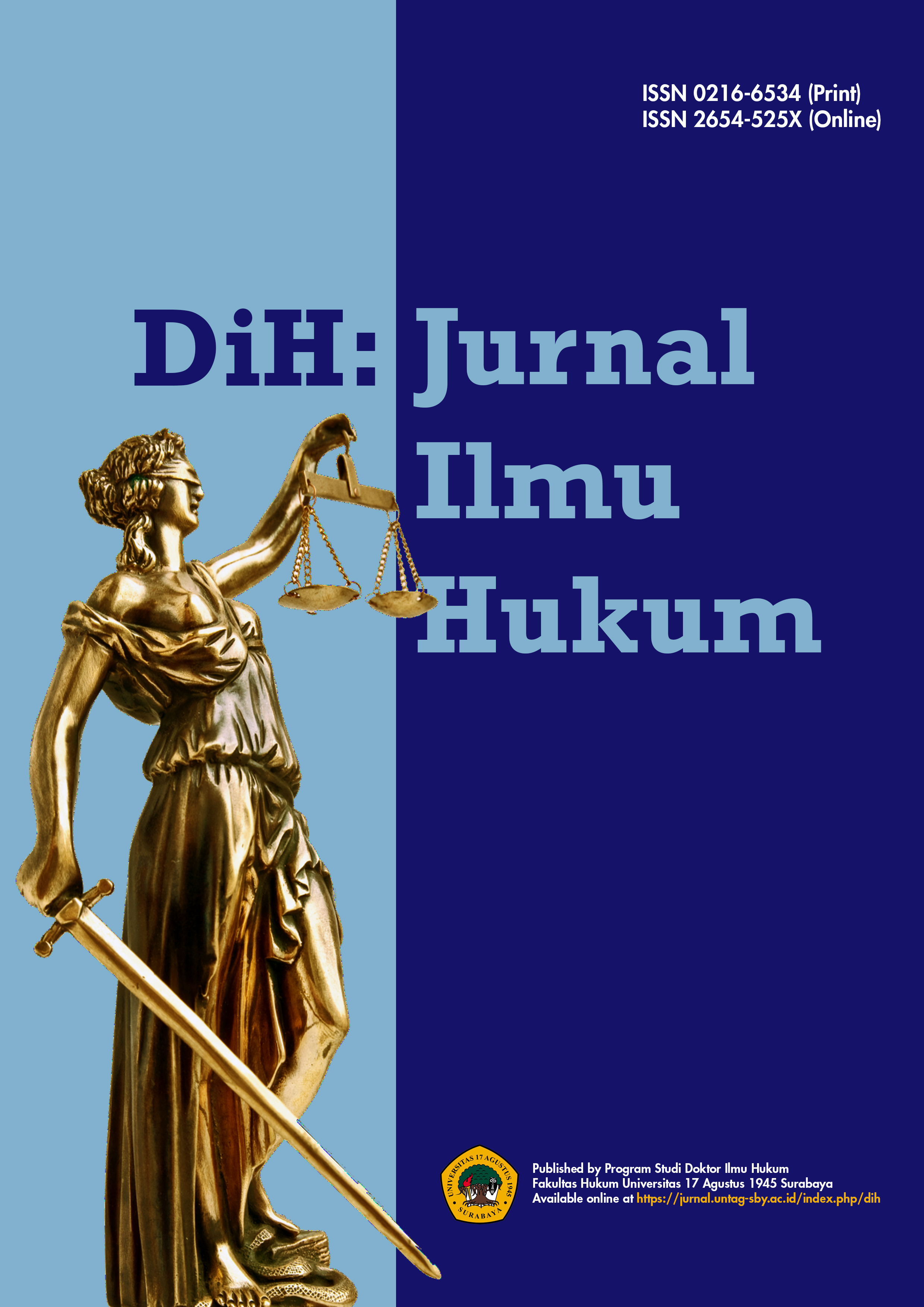The Influence of Theorie Von Stufenbau Der Rechtsordnung in the Indonesian Legal System
DOI:
https://doi.org/10.30996/dih.v20i2.10989Keywords:
hierarchy, legals norm, reviews, validityAbstract
The aim of this research is to analyze the influence of Hans Kelsen's Theorie Von Stufenufbau Der Rechtsordnung on the Indonesian legal system. The research method employed is legal research with a statutory and conceptual approach. Primary and secondary legal materials are analyzed using normative analysis. The findings reveal that Theorie Von Stufenufbau Der Rechtsordnung significantly impacts the Indonesian legal system. There are at least two main influences identified. First, the system of laws and regulations in Indonesia has been structured hierarchically since the enactment of the Temporary People's Consultative Assembly Decree No. XX/1966 up to the present day. However, this hierarchy is not absolute, especially concerning the positions of Perppu and People's Consultative Assembly Decrees. Second, there is a recognized mechanism for reviewing legal norms to ensure their validity, whether through judicial review, political review, or executive review. The hierarchical structure of Indonesia's legal system reflects Kelsen's theory, which posits that law consists of interrelated levels of norms. Each level derives its authority from the norm above it, with the basic norm at the apex, serving as the source of legitimacy for the entire legal system. In the Indonesian context, this basic norm can be identified as the UUD NRI 1945, which underpins all subordinate legislation. The review mechanism for legal norms also illustrates the influence of Kelsen's theory. Judicial review, conducted by the Constitutional Court, assesses whether a law aligns with the Constitution. Political review is undertaken by legislative bodies such as the DPR, which can evaluate and amend legislation. Executive review is carried out by executive bodies, such as the President or ministers, who have the authority to adjust or repeal regulations deemed inappropriate.
Downloads
Downloads
Published
Issue
Section
License
Authors who publish with DiH: Jurnal Ilmu Hukum agree to the following terms:
- Authors transfer the copyright and grant the journal right of first publication with the work simultaneously licensed under a CC BY-SA 4.0 that allows others to share the work with an acknowledgement of the work's authorship and initial publication in this journal.
- Authors are able to enter into separate, additional contractual arrangements for the non-exclusive distribution of the journal's published version of the work (e.g., post it to an institutional repository or publish it in a book), with an acknowledgement of its initial publication in this journal.
- Authors are permitted and encouraged to post their work online (e.g., in institutional repositories or on their website) prior to and during the submission process, as it can lead to productive exchanges, as well as earlier and greater citation of published work (See The Effect of Open Access)










